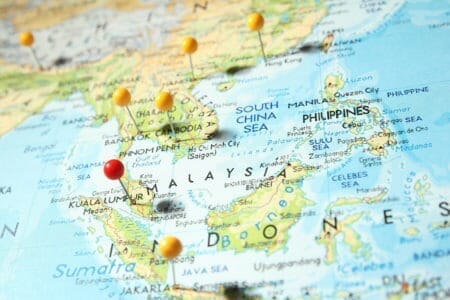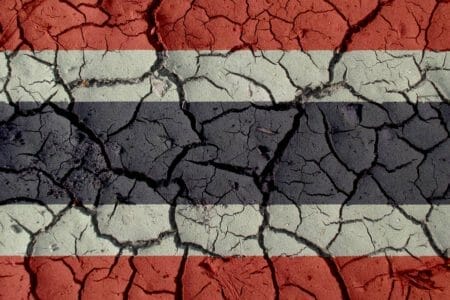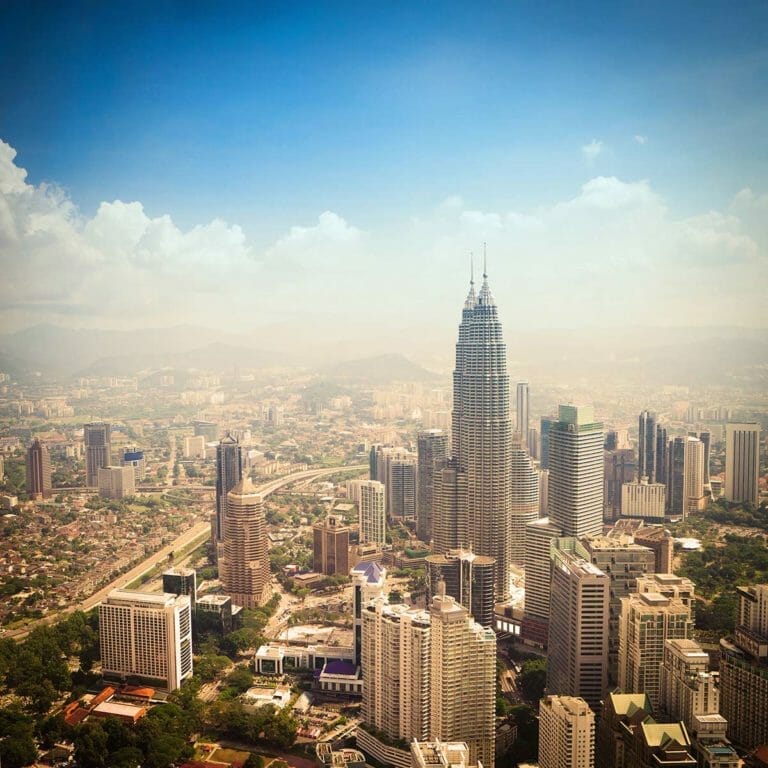The Second Retreat of FORSEA took place at the City of Bandung, Indonesia, from 23-25 November 2018. Thirty-two representatives from selected Southeast Asian countries, from different backgrounds and expertise, participated in the retreat. We gave emphasis to the 50-50 gender representation at the gathering and also adhered closely to the key three objectives of FORSEA:

Roundtable discussions and presentations at the Second Retreat of FORSEA which took place in Bandung Indonesia, November 23-25, 2018.
Discussion in Focus
The Philippines
The Retreat started off with a discussion on developments in terms of political, economic and the social state of Southeast Asia. In the case of the Philippines, since 2016, participants from the Philippines shared their views that President Rodrigo Duterte has centralised control into his increasingly militarised and authoritarian government, while also dismantling the final regulatory barriers that have prevented foreign capital from completely dominating the Philippine economy. In two-and-a-half-years, Duterte has formed a supermajority in the Congress with the country’s most famous plunderers and their allies (e.g., Sen. Ferdinand Marcos Jr., the son of the former dictator, and former president Rep. Gloria Macapagal Arroyo) while also orchestrating the arrest of one of his prominent political opponents, Sen. Leila de Lima. In the judiciary, he ousted the head of the Supreme Court, Chief Justice Maria Lourdes Serreno, to replace her with one of his own allies. Despite promises to end it swiftly, martial law has been extended in Mindanao and is looming nationwide. Meanwhile, thousands of activists, labour organisers, peasants and leaders of indigenous peoples – as well as thousands caught up in Duterte’s “drug war” – are being killed with impunity by either the police, the military, or by government-supported paramilitary groups.
Duterte has both implemented an anti-poor taxation system (TRAIN Law) as well as sought foreign loans that will massively increase Philippine debt.
This almost total control of Philippine politics has allowed Duterte to accelerate and intensify neoliberal economic policies that previous regimes also attempted. While dominated by U.S. foreign interests in its fight against armed movements, the US-Duterte regime has simultaneously courted Chinese investments to fund its projects. To fund the massive infrastructure project “Build, Build, Build” (BBB), Duterte has both implemented an anti-poor taxation system (TRAIN Law) as well as sought foreign loans that will massively increase Philippine debt to attract foreign businesses under an “export-oriented, import-dependent” economic model. Meanwhile, proposed changes to the constitution will allow foreigners to own Philippine land and assets. These economic policies, along with rampant contractualization and the blatant crackdown on the labor and the indigenous peoples’ movements, are all designed to make the Philippines as attractive as possible to foreign capital at the expense of the Filipino people.
Malaysia, Indonesia & Singapore
 As for Malaysia, the presentation touched upon three points. First, civil servants, corporate workers and agencies related to the government do not understand the aspirations and ideas of changes brought by the people of Malaysia and the civil society movement. It may be true to state that they played their part by slowing down the changes by not cooperating with the people, but rather channeling information to dissident parties, which want to perpetuate the old work culture and the status quo. Second, there are various NGOs that were once partners of the people who worked toward making changes on 9 May 2018. While they want to make drastic changes in the immediate future, they did not understand the existent order in the structure of the government and in the old work culture. Additionally, there is a concern that supporters of the old regime have disguised themselves as NGOs, while their intentions are to disrupt the process of change and the widening of the space for democracy and freedom of speech that are now being sought. Third, some industry players and private sectors are part of the political problem. They have become opportunists, by focusing on profits, with disregard for legal and human right issues, the preservation of the environment and social justice for the benefits of society.
As for Malaysia, the presentation touched upon three points. First, civil servants, corporate workers and agencies related to the government do not understand the aspirations and ideas of changes brought by the people of Malaysia and the civil society movement. It may be true to state that they played their part by slowing down the changes by not cooperating with the people, but rather channeling information to dissident parties, which want to perpetuate the old work culture and the status quo. Second, there are various NGOs that were once partners of the people who worked toward making changes on 9 May 2018. While they want to make drastic changes in the immediate future, they did not understand the existent order in the structure of the government and in the old work culture. Additionally, there is a concern that supporters of the old regime have disguised themselves as NGOs, while their intentions are to disrupt the process of change and the widening of the space for democracy and freedom of speech that are now being sought. Third, some industry players and private sectors are part of the political problem. They have become opportunists, by focusing on profits, with disregard for legal and human right issues, the preservation of the environment and social justice for the benefits of society.
In Indonesia . . . there occurs a widening gap between the rich and the poor.
In the case of Indonesia, representatives were aware of the resurgence of the military in politics. It might be true that Indonesia has achieved a great deal regarding democratization. Yet, there occurs a widening gap between the rich and the poor. Meanwhile, the reform movement has begun to lose much of its strength, unity and momentum. The representative told us that they lost hope for President Joko Widodo. In the meantime, the political situation in Singapore has not improved. The perpetration of state control in the hands of the ruling party, the PAP, has continued. It has resulted in prolonged public inertia, creating passive citizens and a disunited opposition. The Singaporean government continues to operate upon the developmentalist mindset, where economic prosperity trumps participatory democracy. But even the claim for economic prosperity is increasingly wearing thin. Like Indonesia in some ways, the country is experiencing a widening gap between the rich and the poor.
Thailand & Myanmar
 Thailand is a country in prolonged crisis. The upcoming elections will not promise the return to democracy given the fact that the constitution, drafted by the military, has been designed to provide a platform for the entrenchment of the army in politics. The judiciary continues to be politicised. At the same time, the current military government has attempted to strengthen bureaucratisation, allowing the bureaucracies to be politicised in exchange for their enhanced power in the administration. The Thai state has also striven to silence critics of the monarchy, by normalising the use of the Computer Crime Act. Somyot Pruksakasemsuk, a former political prisoner charged with lese majeste, stated that, “Even outside prison there is no freedom.”
Thailand is a country in prolonged crisis. The upcoming elections will not promise the return to democracy given the fact that the constitution, drafted by the military, has been designed to provide a platform for the entrenchment of the army in politics. The judiciary continues to be politicised. At the same time, the current military government has attempted to strengthen bureaucratisation, allowing the bureaucracies to be politicised in exchange for their enhanced power in the administration. The Thai state has also striven to silence critics of the monarchy, by normalising the use of the Computer Crime Act. Somyot Pruksakasemsuk, a former political prisoner charged with lese majeste, stated that, “Even outside prison there is no freedom.”
Human rights understanding has been tainted with racism and islamophobic polarisation even amongst pro-democracy activists.
Turning to Myanmar; in order to have a birds eye’s view, it is important to understand that Myanmar like other nations had to recover after regaining independence in 1948 with a new evolutionary ontological understanding of universal human rights. It was succeeding and thriving until the military coup in 1962 where the new regime disrupted and destroyed evolutionary knowledge and the momentum as a nation. Education system was destroyed, social cohesion distorted, and the economic system crumbled to reach to the point to one of the poorest nations in the world. Although there has been many human rights movements throughout the totalitarian regime era and in the post-1988 uprising, these movements lacked unified strategies and approaches. Some activists in the country succeeded in advocating the regime to sign and ratify many UN Human Rights Conventions (UNCRC, UNCEDAW, UNCRPD, etc.) and ultimately, to an extent, in pushing for the emancipation of the Nobel Laureate Aung San Suu Kyi in 2012. However, successful it may seem, all of the human rights momentum, gained over those decades and the space created for debates and discussions promoting evolutionary knowledge about universal human rights philosophies, has been distorted by the recent Rohingya crisis. Human rights understanding has been tainted with racism and islamophobic polarisation even amongst pro-democracy activists. Within that context, the military-imposed 2008 constitution still remains in place with shrinking freedom of expression. The state especially targets media and civil societies promoting different identities.

The poor area near the river in Phnom Penh, Cambodia.
Cambodia & Vietnam
What has happened in Cambodia? With an annual economic growth of 7 percent for two decades, Cambodia has lifted more millions of people from poverty and contributed to burgeoning middle classes that are now calling for free open space for social, economic and political rights. The ruling party had dissolved the main opposition party while charging the party leader with treason (conspiracy with foreign country), banned 118 opposition politicians including 55 parliamentarians from political life for 5 years in 2017, and silenced and cracked down on political commentators, civil society, and independent media. It is widely believed that the attempt to move ahead 2018 national election was the result of the main opposition party gaining many votes and popularity in 2013 national election and 2017 commune/council election, and a leaked survey conducted by Mr. Shaviv, CEO of Israel-based Political Consultancy Shaviv Strategy and Campaign which revealed that the opposition party would win the election as well as with the strong support from China economically and politically. In sum, regime survival has brought the dissolution of the opposition party and silencing civil society, NGOs and independent media. However, there was some improvement seen with the release of opposition political and human rights activists as well as the transferring Kem Sokha from prison to house arrest in September 2018.
The case in is equally complicated in Vietnam. Speakers from that country emphasised the fact that the election process has continued to be tightly controlled by the Communist Party; opposition parties are outlawed in the country. Yet, the system of electing members of the Community Party has showed a ray of hope in terms of democratic space in Vietnam. Activists in Vietnam are now working towards competing for parliamentary seats for the state’s non-endorsed members. It might only be a small step toward opening up the country, but it is an important one.

Discussion on the commonalities and differences in Southeast Asian people’s movements at the Second Retreat of FORSEA, Bandung Indonesia, November 23-25, 2018
Commonalities and Differences
In the afternoon session, discussion concentrated on the commonalities and differences in Southeast Asian people’s movements. The discussion first examined the growing authoritarian tendency in the region in which collaboration among the political elites has been evident. Here, the role of outside powers, in this case, China, in shaping politics and the consequences among Southeast Asian states, is imperative. China plays a role in buttressing the authoritarian tendency in this part of the world. Like Latin America, a region subservient to the power of the United States, Southeast Asia is increasingly becoming subservient to the power of China.
Many Southeast Asia states share common historical traumas as well as political upheavals. Among these commonalities, issues like ethnic and religious conflicts now capture international headlines. From Cambodia to Thailand, from Vietnam to Myanmar, these countries have shared similar political, economic and socials problems.
- Problems with the political structural changes: Some countries in Southeast Asia will go through elections in the next year or so. Through elections, political parties and the people must deal with the overwhelming power of the army in politics, the politicised judiciary and other so-called independent organisations;
- Identity crisis: This is in the form of crisis in the identity of races, religions and political organisations;
- Demographic challenges: Southeast Asia is transforming into a number of aging societies. The need to train new generation to understand the new political context is important;
- To coordinate efforts across the regime designed to propagate progressive ideas and ideals such as democratic ethos, gender equality, ecological sensitivity and economic and social justice, through mass media and popular art mediums (films, songs, cartoons, performing art, posters, creative writings, etc.).
Breakout Sessions
There were four break-out sessions which delved into four critical issues facing Southeast Asia.
- Human rights and political violence: From organised extra-judicial killings to anti-terrorist and anti-drugs efforts, the state legitimises itself in dealing with what were perceived to be threat of the nation in a violent way. The ethnic cleansing of the Rohingyas demonstrated such mentality of the Myanmar state;
- The rights of LGBTQ: Although this term is borrowed from the West, LGBTQ movements in Southeast Asia have not prospered as their counterpart in the developed nations. LGBTQ groups have been forced to behave “normal” in order to fit in with the hierarchical society based on heterosexual supremacy;
- Environmental degradation: The need to instill awareness of environmental protection must be promoted further. It is true that in the past decades, Southeast Asia has woken up to a new reality in which countries from outside the region, such as China, have made inroads into the region without any concerns about environment;
- Legal Structure: In many occasions, the state continues to operate outside the legal frameworks as part of prolonging its rule. In some countries, laws became a part of the state’s tool in curbing criticisms against its regime.
What’s Next?
FORSEA will work to establish ties with different communities, learning from one another, and find ways to come up with concrete plans to achieve goals of building a just, fair and democratic region.
The next step is the official launch of FORSEA, 15-16 February 2019. Tun Dr Mahathir bin Mohamad, Malaysian Prime Minister, will grace the occasion by giving an opening speech at the launch.


